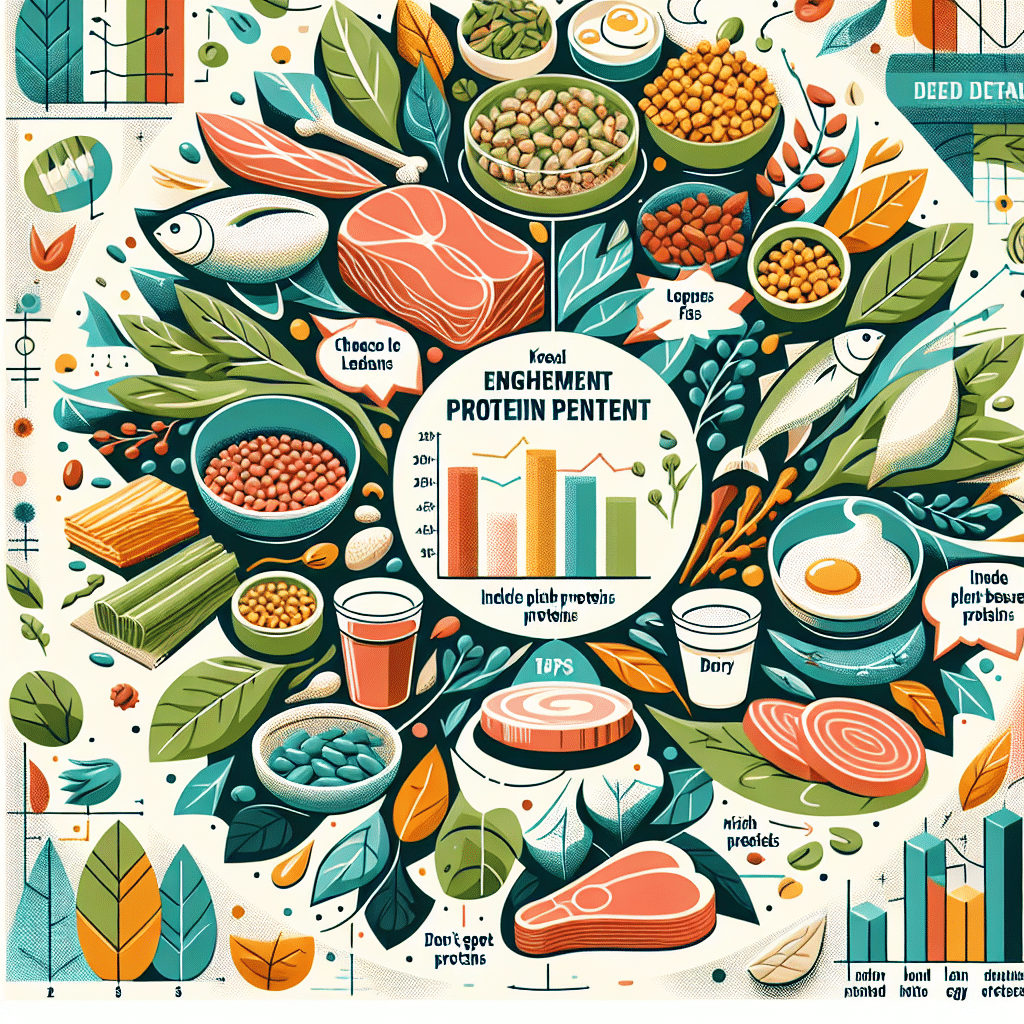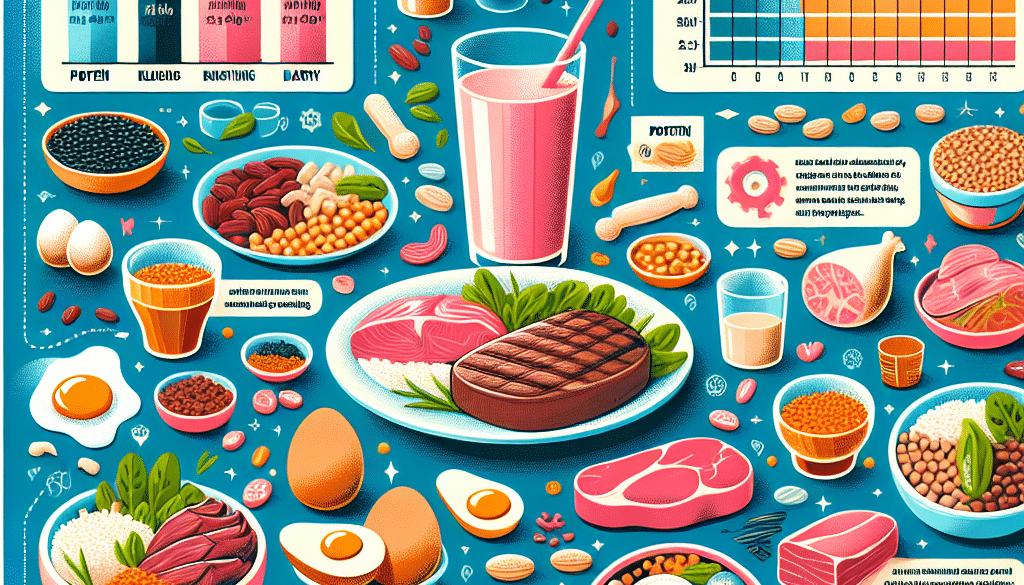Enhancing Protein Content in Diets: Nutrition Tips
-
Table of Contents
- Boosting Protein Intake: Essential Nutrition Tips
- Understanding the Importance of Protein
- Identifying High-Protein Foods
- Incorporating Protein into Every Meal
- Understanding Plant-Based Proteins
- Supplementing with Protein Powders
- Staying Hydrated and Monitoring Intake
- Case Studies and Statistics
- Conclusion: Key Takeaways for Enhancing Protein in Your Diet
- Enhance Your Protein Intake with ETprotein Products
Boosting Protein Intake: Essential Nutrition Tips

Protein is a vital macronutrient that plays a crucial role in building and repairing tissues, supporting immune function, and contributing to overall health. With the growing awareness of the importance of protein in the diet, many individuals are seeking ways to enhance their protein intake. This article provides practical nutrition tips for increasing protein content in your diet, supported by relevant examples, case studies, and statistics.
Understanding the Importance of Protein
Proteins are made up of amino acids, which are often referred to as the building blocks of life. They are essential for the structure and function of all living cells and are particularly important for muscle growth, repair, and maintenance. The Recommended Dietary Allowance (RDA) for protein is 0.8 grams per kilogram of body weight per day for adults, but this can vary based on age, sex, and level of physical activity.
Identifying High-Protein Foods
To enhance protein content in your diet, it’s important to identify foods that are rich in this nutrient. Here are some high-protein food sources:
- Lean meats such as chicken, turkey, and lean cuts of beef or pork
- Fish and seafood, including salmon, tuna, and shrimp
- Dairy products like milk, cheese, and yogurt
- Plant-based proteins such as beans, lentils, chickpeas, and tofu
- Nuts and seeds, including almonds, peanuts, and chia seeds
- Whole grains such as quinoa and buckwheat
Incorporating Protein into Every Meal
One of the most effective strategies for increasing protein intake is to include a source of protein in every meal. This not only helps to meet your daily protein requirements but also aids in satiety and blood sugar regulation. Here are some meal ideas:
- Breakfast: Greek yogurt with nuts and berries or scrambled eggs with spinach
- Lunch: Quinoa salad with chickpeas, vegetables, and feta cheese
- Dinner: Grilled salmon with steamed broccoli and brown rice
- Snacks: A handful of almonds or a protein shake
Understanding Plant-Based Proteins
For vegetarians, vegans, or those looking to reduce their meat consumption, plant-based proteins are an excellent alternative. They not only provide protein but also contain fiber and other essential nutrients. Combining different plant-based protein sources can ensure you get all the essential amino acids your body needs.
Supplementing with Protein Powders
Protein powders can be a convenient way to boost protein intake, especially for athletes or those with higher protein needs. Whey, casein, and plant-based protein powders like pea or rice protein can be added to smoothies, oatmeal, or baked goods to increase the protein content of your meals.
Staying Hydrated and Monitoring Intake
As you increase your protein intake, it’s important to stay hydrated. Higher protein diets can increase the body’s need for water. Additionally, while increasing protein can have benefits, it’s important to balance your diet and not consume excessive amounts, as this can lead to other health issues.
Case Studies and Statistics
Research has shown that higher protein diets can aid in weight loss and muscle maintenance. A study published in the “American Journal of Clinical Nutrition” found that increasing protein intake to 30% of total calories helped participants eat fewer calories and lose weight. Another study indicated that older adults with higher protein intake had better muscle mass retention.
Conclusion: Key Takeaways for Enhancing Protein in Your Diet
In summary, enhancing protein content in your diet involves choosing high-protein foods, incorporating protein into every meal, understanding plant-based protein options, and considering supplementation if necessary. Remember to stay hydrated and monitor your overall intake to maintain a balanced diet.
Enhance Your Protein Intake with ETprotein Products
If you’re looking to supplement your diet with high-quality protein powders, ETprotein offers a range of organic bulk vegan protein and plant proteins. Their products, including Organic rice protein, clear rice protein, pea protein, and more, are non-GMO, allergen-free, and have a neutral taste, making them a great addition to any diet.
About ETprotein:
ETprotein, a reputable protein Chinese factory manufacturer and supplier, is renowned for producing, stocking, exporting, and delivering the highest quality organic bulk vegan protein and plant proteins. They include Organic rice protein, clear rice protein, pea protein, clear pea protein, pumpkin seed protein, sunflower seed protein, mung bean protein, peanut protein etc. Their offerings, characterized by a neutral taste, non-GMO, allergen-free attributes, cater to a diverse range of industries. They serve nutraceutical, pharmaceutical, cosmeceutical, veterinary, as well as food and beverage finished product distributors, traders, and manufacturers across Europe, USA, Canada, Australia, Thailand, Japan, Korea, Brazil, and Chile, among others.
ETprotein specialization includes exporting and delivering tailor-made protein powder and finished nutritional supplements. Their extensive product range covers sectors like Food and Beverage, Sports Nutrition, Weight Management, Dietary Supplements, Health and Wellness Products, and Infant Formula, ensuring comprehensive solutions to meet all your protein needs.
As a trusted company by leading global food and beverage brands and Fortune 500 companies, ETprotein reinforces China’s reputation in the global arena. For more information or to sample their products, please contact them and email sales(at)ETprotein.com today.














